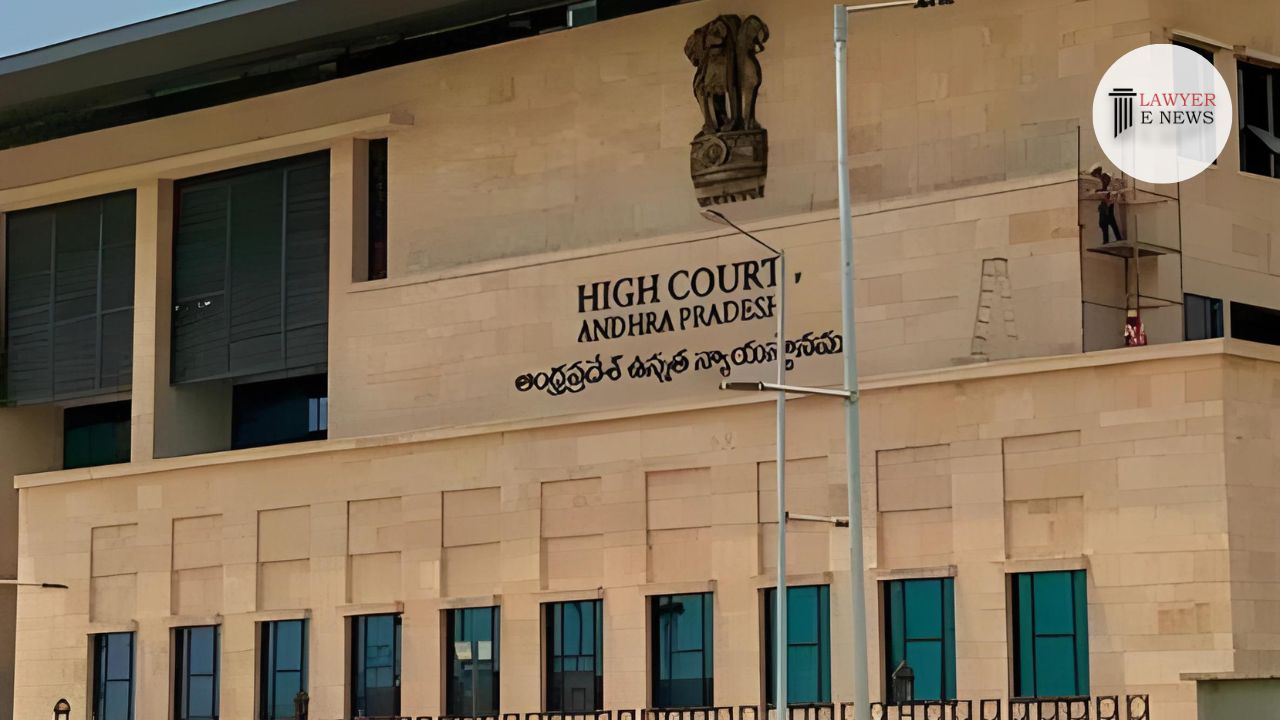-
by Admin
15 February 2026 5:01 PM



The Andhra Pradesh High Court, in a significant judgment delivered on August 23, 2024, set aside the eviction orders issued by the Wakf Board and the District Collector under Section 52 of the Wakf Act, 1995. The Court, presided over by Justice Nyapathy Vijay, ruled that the eviction notices issued to the petitioners were not legally sustainable, as they were based on erroneous notifications and lacked the requisite procedural compliance, including a proper inquiry into the claims of ownership.
The case arose from an order by the District Collector, East Godavari District, directing the Tahsildar, Mummidivaram to hand over certain lands to the Wakf Board. These lands were alleged to be Wakf properties under illegal occupation following unauthorized purchases. The petitioners challenged these eviction orders before the Andhra Pradesh State Wakf Tribunal, which dismissed their appeals, leading them to file the present revisions under Section 83 of the Wakf Act, 1995.
The Court found a significant variance between the original Wakf notification dated April 19, 1962, and the corrigendum notification issued in 2016. The original notification inaccurately recorded the extents of land, and the corrigendum, issued decades later, attempted to correct these inaccuracies without following the due process required under the Wakf Act, 1995. Justice Vijay stated, “The District Collector is duty-bound to independently examine the requisition of the Wakf Board against the original notification and ensure compliance with the legal process before taking any action.”
The Court was critical of the Wakf Board’s reliance on an erroneous notification from 1962 to issue eviction notices in 2002. It highlighted that the corrigendum notification, issued in 2016, was not properly brought to the notice of the appellate court or the District Collector before eviction actions were initiated. Justice Vijay emphasized that without following the due process, including providing notice to the parties affected by the corrigendum and allowing for objections, the eviction orders could not stand.
The Court underscored that the summary procedure under Section 52 of the Wakf Act, 1995, could not be applied in cases where there were serious disputes regarding the title of the property. The Court cited the Supreme Court’s ruling in Govt. of A.P. v. Thummala Krishna Rao (1982) and State of Rajasthan v. Padmavati Devi (1995), noting that summary eviction procedures are inappropriate where complex questions of title are involved. Justice Vijay asserted, “In cases where serious disputes of right and title are raised, summary proceedings cannot be resorted to; only a regular suit before the Wakf Tribunal should be filed.”
The petitioners traced their title to registered sale deeds from 1939, predating the enactment of relevant Wakf laws. The Court noted that the requirement for Wakf Board permission for the sale of Wakf properties was introduced only with the Wakf Act, 1954. Hence, the sales in question, made before this requirement existed, could not be retrospectively invalidated. The judgment pointed out, “Even if the property is assumed to be Wakf, the sale in 1939 cannot be termed as violative of Section 36A of the Wakf Act, 1954.”
The Andhra Pradesh High Court’s decision underscores the importance of following due legal processes and the limitations of the Wakf Board’s powers under the Wakf Act, 1995. By invalidating the eviction orders, the Court has set a precedent that emphasizes the necessity of thorough inquiry and respect for historical property rights. This judgment is expected to have far-reaching implications, particularly in disputes involving Wakf properties, reinforcing the requirement for due process and fair adjudication in property disputes.
Date of Decision: August 23, 2024
Sri Vanka Thrimurthulu v. District Collector And District Magistrate And 2 Others
